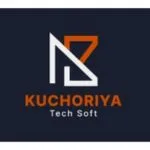Top Hotel Web Design Companies
A well-designed website is crucial for hotels to attract guests, showcase amenities, and drive direct bookings. Our list of Top Hotel Web Design Companies features the best agencies specializing in hospitality website development, booking system integration, and mobile-friendly designs. These companies provide expertise in SEO-optimized websites, custom branding, and user-friendly interfaces that enhance guest experiences and boost online visibility. Browse reviews, portfolios, and industry ratings to find the perfect web design partner for your hotel. Choose a top-rated agency to create a seamless and visually appealing website that maximizes bookings and enhances your brand’s digital presence..
List of the Best Hotel Web Design Agencies | Top Hotel Web Design Companies in the World
-
Employees: 11 to 50
-
Min. Project amount: $1,000+
-
Country: Lisboa, Portugal
Webs Leagues
-
Employees: 50 to 249
-
Min. Project amount: $1,000+
-
Country: Aiken, SC

ToXSL Technologies
-
Employees: 101 to 250
-
Min. Project amount: $10,000+
-
Country: Sahibzada Ajit Singh Nagar, India
Discountcodez
-
Employees: 51 to 100
-
Country: Bedfordshire, United Kingdom

SunTec India
-
Employees: 1000+
-
Min. Project amount: $1,000+
-
Country: New Delhi, India

Luvina Software JSC
-
Employees: 501 to 1000
-
Min. Project amount: $5,000+
-
Country: Cau Giay, Vietnam

MediaNV
-
Employees: 51 to 100
-
Min. Project amount: $1,000+
-
Country: Calgary, Canada

Nest Software Private Ltd
-
Employees: 11 to 50
-
Min. Project amount: $1,000+
-
Country: Amritsar, India

Globus Finanza
-
Employees: 11 to 50
-
Min. Project amount: $1,000+
-
Country: Delaware, United States

Kuchoriya TechSoft
-
Employees: 101-250
-
Min. Project amount: $1,000+
-
Country: Mississauga, Canada
** Buyer's Guide **
1.What Should I Look for When Choosing a Hotel Web Design Company?
Selecting the right hotel web design company is crucial for creating a high-performing website that attracts guests and drives bookings. Here are key factors to consider:
1. Industry Experience and Portfolio
Look for agencies with experience in designing websites for hotels, resorts, or hospitality businesses.
Review their portfolio to assess design quality, functionality, and user experience.
Check if they have worked with properties similar to yours (luxury, boutique, budget, etc.).
2. Mobile-Friendly and Responsive Design
Ensure the agency builds mobile-friendly websites that adapt to different screen sizes.
A responsive design improves user experience and SEO rankings.
Test their previous work on different devices for smooth navigation.
3. Online Booking System Integration
A seamless booking engine integration is essential for direct reservations.
Check if they offer user-friendly, secure, and fast booking solutions.
Ensure compatibility with third-party booking platforms (Expedia, Booking.com, Airbnb, etc.).
4. SEO and Performance Optimization
A well-optimized hotel website should rank high on search engines.
Ask if they provide SEO-friendly site structures, fast-loading pages, and optimized content.
Inquire about local SEO strategies for attracting nearby travelers.
5. Customization and Branding
The website should reflect your hotel’s unique brand and identity.
Look for an agency that offers custom designs rather than template-based solutions.
Ensure they can incorporate your branding elements (logos, colors, typography, etc.).
6. High-Quality Visuals and Virtual Tours
Engaging visuals are crucial for attracting guests.
Ask if they provide high-resolution image galleries, video integrations, and 360° virtual tours.
Ensure the website layout highlights your property’s best features.
7. Secure Payment and Data Protection
Check if the agency provides secure payment gateways for online reservations.
Ensure compliance with data protection regulations like GDPR or PCI DSS.
A secure website builds trust and prevents cyber threats.
8. Ongoing Support and Maintenance
Websites require updates, bug fixes, and security patches.
Ask if they offer post-launch support, including technical assistance and updates.
Check if they provide website analytics and reporting services.
By considering these factors, you can choose a hotel web design company that enhances guest experiences and boosts direct bookings.
2.Do Hotel Web Design Agencies Offer Booking Engine Integration and Mobile-Friendly Designs?
Yes, most hotel web design agencies offer booking engine integration and mobile-friendly designs as essential features. Here’s what to consider when evaluating these services:
1. Seamless Booking Engine Integration
A hotel website must have a built-in booking system or integrate with third-party booking engines.
Look for agencies that support direct booking solutions to reduce dependency on OTAs (Online Travel Agencies) and increase revenue.
Ensure the booking engine provides real-time availability, secure payments, and an easy-to-use interface.
Popular integrations include Expedia, Booking.com, Airbnb, Hotelbeds, and SynXis.
2. Mobile-Responsive Design
A mobile-friendly website ensures a seamless experience across devices (smartphones, tablets, desktops).
Responsive designs adjust automatically to different screen sizes, improving usability and engagement.
Google prioritizes mobile-friendly sites in search rankings, helping attract more organic traffic.
3. Fast and Optimized Mobile Booking Process
A slow or complicated booking process can lead to lost reservations.
Ensure the web design agency implements a one-click booking system with minimal form fields.
Features like Google Pay, Apple Pay, and guest check-out options improve mobile conversions.
4. Mobile App Integration
Some hotel web design agencies also offer mobile app development to enhance guest engagement.
Apps can provide loyalty programs, room service ordering, and direct messaging with hotel staff.
5. User-Friendly Navigation and UI/UX Design
Guests should easily find room availability, pricing, and special offers on mobile devices.
Interactive features like sticky booking buttons, chatbot assistants, and multilingual support improve the mobile experience.
Conclusion
When selecting a hotel web design agency, ensure they offer seamless booking engine integration and a fully responsive design to enhance guest experience and increase direct bookings. A mobile-first approach is essential for attracting modern travelers.
3.How Much Does It Cost to Hire a Hotel Web Design Company?
The cost of hiring a hotel web design company varies based on factors like design complexity, features, customization, and ongoing maintenance. Here’s a breakdown of pricing structures:
1. Basic Hotel Website (Template-Based) – $1,500 to $5,000
✔ Ideal for small hotels, B&Bs, and guesthouses
✔ Uses pre-designed templates with basic customization
✔ Includes essential pages (Home, About, Rooms, Contact, Booking)
✔ Basic mobile responsiveness
✔ Limited booking system integration (third-party services like Airbnb, Expedia)
2. Custom Hotel Website – $5,000 to $15,000
✔ Tailored design to match the hotel’s branding
✔ Fully responsive and mobile-optimized
✔ Direct booking engine integration (custom or third-party like SynXis, Booking.com)
✔ Interactive features (360° virtual tours, high-quality images, video backgrounds)
✔ SEO-optimized for better search engine rankings
✔ Multi-language and currency support
3. High-End Hotel Web Design (Luxury & Large Chains) – $15,000 to $50,000+
✔ Advanced UI/UX design for premium user experience
✔ Fully custom-built booking and reservation system
✔ AI chatbots for customer inquiries
✔ CRM & PMS (Property Management System) integration
✔ Loyalty programs and membership portals
✔ Performance analytics and conversion optimization
✔ Ongoing support, security, and regular updates
4. Additional Costs to Consider
Domain & Hosting: $50 – $500/year (depending on provider)
Booking Engine Subscription: $50 – $500/month (for third-party systems)
SEO & Digital Marketing: $500 – $5,000/month
Website Maintenance: $100 – $1,500/month
Final Thoughts
The total cost depends on your hotel’s size, branding needs, and features. A template-based website is cost-effective, while custom solutions provide greater flexibility and revenue potential. Large hotels and chains may need advanced systems and integrations, making it a higher investment.
4.What Key Features Should a High-Performing Hotel Website Include?
A high-performing hotel website is more than just visually appealing—it should be user-friendly, conversion-focused, and fully optimized to drive direct bookings. Below are the must-have features for a hotel website:
1. Mobile-Friendly & Responsive Design
✔ Ensures seamless experience across desktops, tablets, and mobile devices
✔ Adapts to different screen sizes for easy navigation
✔ Google prioritizes mobile-friendly sites for better search rankings
2. Direct Booking System & Payment Gateway
✔ Allows guests to book rooms directly (reducing dependency on OTAs like Booking.com & Expedia)
✔ Secure payment options (credit/debit cards, PayPal, Apple Pay, Google Pay)
✔ Real-time room availability updates
✔ Special offers, promo codes, and loyalty programs
3. High-Quality Visuals & Virtual Tours
✔ Professional high-resolution images of rooms, amenities, and surroundings
✔ 360-degree virtual tours for an immersive experience
✔ Video integration showcasing hotel features, dining, and activities
4. User-Friendly Navigation & Fast Load Speed
✔ Intuitive menu structure for easy browsing (Rooms, Dining, Events, Contact, Gallery)
✔ Lightning-fast loading time to reduce bounce rates
✔ Optimized images and caching for improved performance
5. Integrated Google Maps & Location Details
✔ Displays hotel location with interactive Google Maps
✔ Nearby attractions, transportation hubs, and travel guides
✔ Driving directions & local recommendations
6. Multi-Language & Multi-Currency Support
✔ Essential for international travelers
✔ Translations for key languages (English, Spanish, French, Mandarin, etc.)
✔ Currency conversion for hassle-free pricing
7. Customer Reviews & Testimonials
✔ Display guest reviews from TripAdvisor, Google Reviews, or Yelp
✔ Build credibility and social proof to encourage bookings
✔ User-generated content (guest photos and experiences)
8. SEO Optimization for Better Rankings
✔ Keyword-optimized content for higher search visibility
✔ Fast load speed, meta tags, and structured data markup
✔ Local SEO strategies to attract nearby travelers
9. Blog & Travel Guide Section
✔ Share local attractions, travel tips, and hotel news
✔ Boost organic traffic with SEO-driven content marketing
✔ Engage visitors with helpful resources and itineraries
10. Live Chat & Chatbots for Instant Support
✔ 24/7 customer support through AI-powered chatbots
✔ Instant answers to booking inquiries, pricing, and hotel policies
✔ Helps reduce cart abandonment and increase conversions
11. Social Media Integration
✔ Showcase Instagram, Facebook, and Twitter feeds
✔ Encourage user engagement with guest stories and reviews
✔ Direct links for easy sharing and promotions
12. Security & Data Protection
✔ SSL certificate for secure transactions and GDPR compliance
✔ Safe storage of guest information and payment details
✔ Firewall & anti-malware protection for website security
Final Thoughts
A well-optimized hotel website should be visually appealing, fast-loading, mobile-friendly, and conversion-driven. Integrating direct booking systems, SEO, and engaging content can significantly increase bookings and revenue while enhancing the guest experience.



